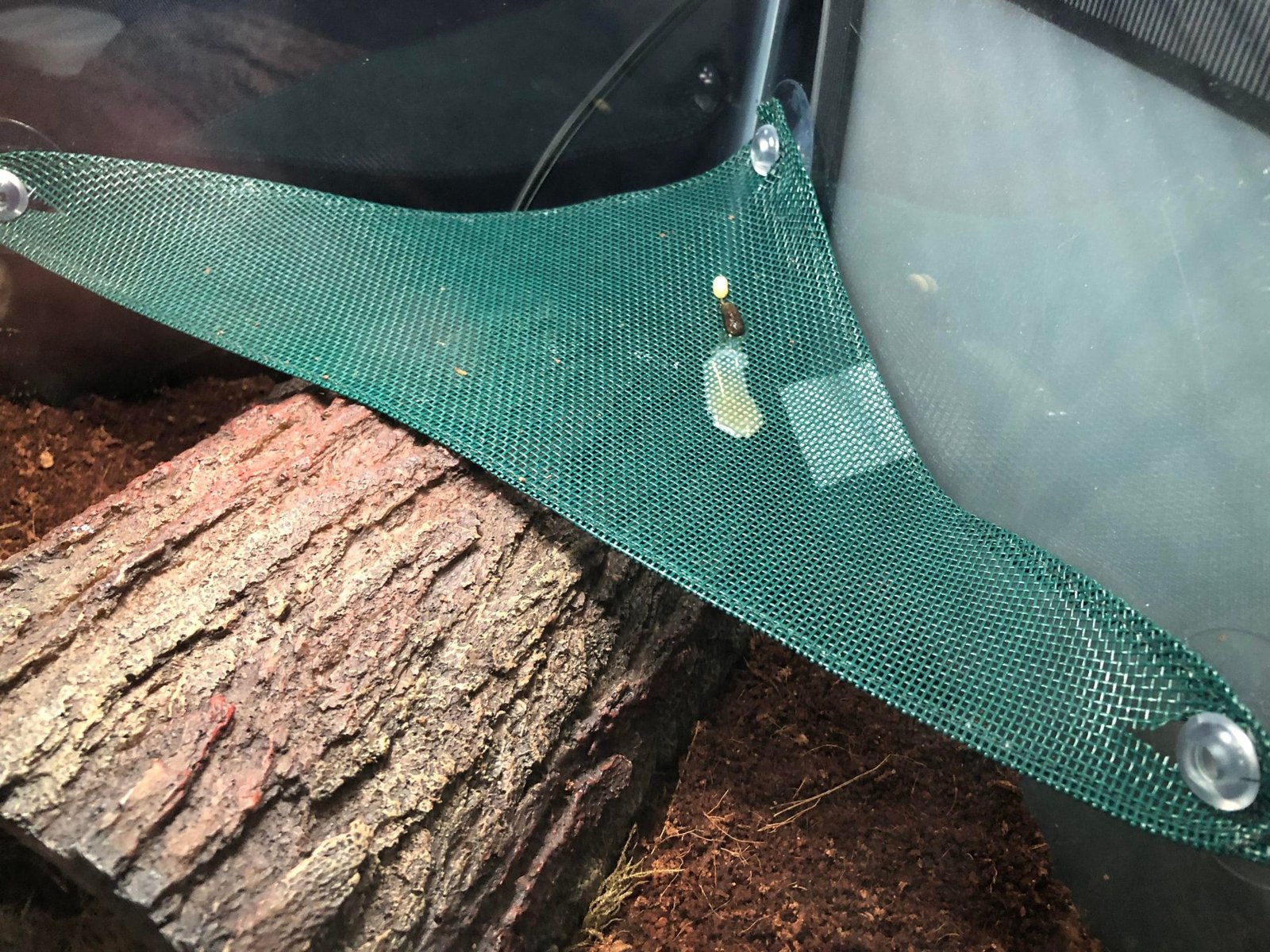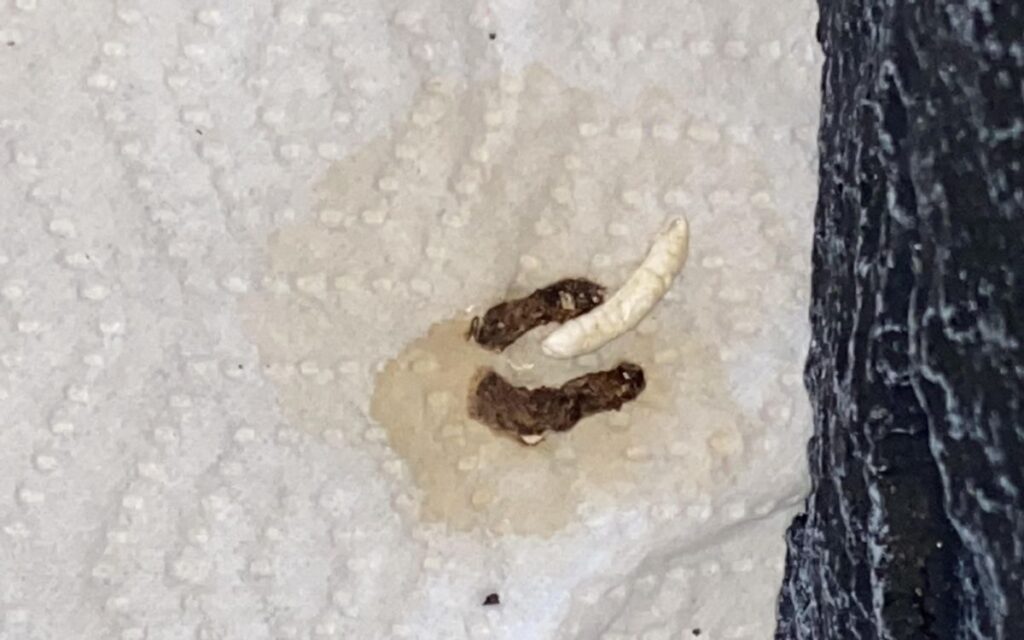Why Did My Leopard Gecko Pee Liquid

There are a few reasons as to why your leopard gecko may have urinated liquid. The first and most common reason is that they are dehydrated and need more water. When leopard geckos are dehydrated, their body will start to break down muscle and fat for water which can lead to serious health problems.
Another possibility is that they are suffering from a kidney infection or disease which will cause them to produce more urine than usual. If you notice your leopard gecko urinating frequently or producing large amounts of urine, it is important to take them to the vet for a check-up.
If you’ve ever found your leopard gecko lying in a pool of what looks like water, you’re probably wondering why did my leopard gecko pee liquid? The answer is actually quite simple. When a leopard gecko gets too warm, they will release this clear liquid from their pores as a way to cool down.
So, if you find your leopard gecko in a puddle of what looks like water, don’t be alarmed, they are just trying to stay cool!

Credit: reptilemaniac.com
What are Signs of an Unhealthy Leopard Gecko?
There are a few signs that may indicate your leopard gecko is unhealthy. For example, if you notice your leopard gecko has lost weight or their appetite has decreased, this could be a sign of an underlying health issue. Other signs include changes in behavior, such as lethargy or depression, and physical changes, such as shedding excessively or having runny eyes.
If you notice any of these changes in your leopard gecko, it’s important to take them to see a veterinarian as soon as possible for a check-up.
Why Does My Leopard Gecko Have Liquid Poop?
There could be a few reasons as to why your leopard gecko has liquid poop. One reason could be that they are suffering from a parasite infection. Another possibility is that they have a bacterial infection, which can sometimes be the case if the liquid poop is green in color.
If your leopard gecko has been eating more frequently than usual, this could also lead to softer stools. If you think your leopard gecko may be ill, it’s always best to take them to see a reptile veterinarian for a check-up and diagnosis.
How Can I Tell If My Leopard Gecko is Dehydrated?
Dehydration is a common problem in leopard geckos, and can be fatal if not treated promptly. There are several ways to tell if your leopard gecko is dehydrated:1. Sunken eyes: If the eyes appear sunken in, this is a sign of dehydration.
2. wrinkled skin: Leopard geckos have very elastic skin. If the skin appears wrinkled, it’s a sign that the animal is dehydrated.3. Lack of appetite: If your leopard gecko isn’t eating, it’s likely because it’s dehydrated and doesn’t have the energy to hunt for food.
4. lethargy: A lethargic leopard gecko is another sign of dehydration.
Does a Gecko Pee?
Yes, a gecko pee. They excrete uric acid in the form of a white paste.
BEARDED DRAGON HAS LIQUID URATES? WHAT CAN YOU DO ABOUT WATERY PEE?
Clear Liquid Coming Out of Leopard Gecko
If you’ve ever noticed a clear liquid coming out of your leopard gecko, you might be wondering what it is. This substance is called urine, and all reptiles produce it. While it may seem strange that something like urine would come out of a reptile, it’s actually quite normal.
There are a few things that can cause your leopard gecko to urinate more than usual. If the temperature in their habitat is too warm, they may start to sweat and produce more urine as a result. Alternatively, if they’re not getting enough water, their body will start to conserve it by producing less urine.
Lastly, if your leopard gecko is under a lot of stress, they may also produce more urine as a way to relieve some of that tension.If you notice that your leopard gecko is urinating more frequently or producing more urine than usual, check their habitat to make sure the temperature isn’t too high and that they have access to clean water. If everything looks fine there, try reducing the amount of stress in their life by handling them gently and providing them with hiding places where they can feel safe.
Leopard Gecko Peed on Me
If you’ve ever had a leopard gecko, you know that they can be pretty stinky creatures. They also have a tendency to pee on their owners from time to time. If this happens to you, don’t worry, it’s not personal.
Here’s what you need to know about why leopard geckos pee on their humans and how to deal with it.Leopard geckos are territorial creatures and will often mark their territory by urinating on any object that enters their space – including humans! This behavior is more common in male leopard geckos, but females can do it too.
If your leopard gecko pees on you, it’s likely because they see you as an intruder in their territory and are trying to warn you off.Dealing with a leopard gecko that pees on you can be tricky. The best course of action is to try and prevent it from happening in the first place.
Make sure that your leopard gecko has a large enough enclosure so that they feel secure and don’t feel the need to mark their territory as often. You should also avoid handling your leopard gecko too much – give them some space and let them come to you when they’re ready.If your leopard gecko does happen to pee on you, the best thing to do is wash off the area with soap and water as soon as possible.
This will help remove the scent of urine and make it less likely that your leopard gecko will target that spot again in the future.
Leopard Gecko Urate But No Poop
If your leopard gecko has urate but no poop, there are a few things that could be going on. First, it’s possible that the gecko is constipated and the urate is actually urine that has backed up due to lack of movement through the digestive system. If this is the case, you’ll want to take steps to help your gecko relieve itself (see our blog post on Leopard Gecko Constipation for more information).
Another possibility is that your gecko is simply not eating enough food. Make sure you’re offering a variety of live insects for your leopard gecko to eat and that they are of an appropriate size (too large and they may be difficult to digest; too small and they may not provide enough nutrition). Finally, it’s also possible that something else is going on with your leopard gecko’s health and you should take them to see a reptile vet for an exam.
Does a Leopard Gecko Wagging Its Tail Fast Mean It is Agitated or Stressed?
The leopard gecko tail wagging behavior can be a sign of agitation or stress. When a leopard gecko wags its tail rapidly, it may indicate that it is feeling threatened or uncomfortable. It is important to observe other accompanying behaviors to better understand the context and ensure the well-being of the gecko.
Leopard Gecko Pee Crystals
Leopard Gecko Pee CrystalsDo you have a leopard gecko that is leaving behind white, chalky crystals in its wake? If so, don’t worry – this is perfectly normal!
These crystals are actually urate, which is a waste product that is eliminated through the urine. While it may seem strange (and perhaps gross!) to us, this process is perfectly natural for these reptiles.So why do leopard geckos produce urate?
Well, they are unable to break down and digest certain types of food properly. As a result, their bodies excrete this waste product through the urine. While it may be unsightly, there’s no need to worry about these crystals – they pose no health threat to your pet reptile.
In fact, you may even find that your leopard gecko enjoys playing with them!
Conclusion
Leopard geckos are a species of lizard that is native to parts of Asia and Africa. They are a popular pet due to their docile nature and unique appearance. Leopard geckos are able to live for up to 20 years in captivity, making them a long-term commitment for owners.
One common concern among leopard gecko owners is why their pet has started urinating liquid instead of the usual solid waste. There are several reasons why this may occur, including dehydration, stress, infection, and kidney disease. It is important to take your leopard gecko to the vet if you notice any changes in their bathroom habits as this could be indicative of a serious health issue.